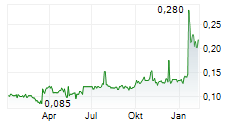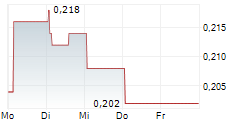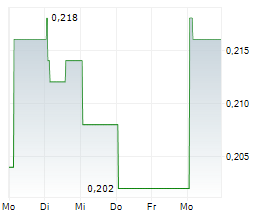
Vancouver, British Columbia--(Newsfile Corp. - April 18, 2024) - Mundoro Capital Inc. (TSXV: MUN) (OTCQB: MUNMF) (www.mundoro.com) ("Mundoro" or the "Company") is pleased to announce results from the inaugural drilling at the Dos Cabezas Project ("Project"), in Cochise County, Arizona. As of April 12, 2024, Mundoro holds 100% of the Project.
Teo Dechev, CEO and President commented "Mundoro is pleased with the initial drilling results from the Dos Cabezas Project. The first phase of drilling tested four target areas, with scout drill holes in each target. In two of the target areas: Mineral Park and Mescal Canyon, these holes aimed to investigate the presence of a porphyry system, suggested by surface geochemistry, alteration, and veining. Both holes confirmed mineralization, supporting the potential for a porphyry-style system and indicating the need for further drilling. Mundoro is progressing in discussions with external parties to potentially option the Project."
Project Location
The Dos Cabezas Project is located in SE Arizona, approximately 150 km east of the city of Tucson, within the prospective Laramide magmatic arc portion of the Southwestern USA cordilleran porphyry belt. The Dos Cabezas Project is surrounded by known porphyry districts, including Safford and Morenci to the north, and Tyrone to the east.
Dos Cabezas Drill Program Overview
Exploration to date has identified three target areas with outcropping alteration and mineralisation potentially associated with Laramide age porphyry copper systems: Mescal Canyon, Mineral Park, and Casey Copper Canyon targets. An additional two undercover target areas were identified: Northwest Pediments target and SouthEast Pediments target, along the apparent WNW trend of the Apache Pass Fault Zone which was interpreted to extend below the shallow pediments (Figure 1).
In the fourth quarter of 2023, two drill holes were successfully completed at the project (Figure 2). The first hole, targeting the Mineral Park area, reached a depth of 598 meters and encountered Cu-Au-Mo mineralization. The second hole, in the Mescal Canyon area, reached a depth of 743.7 meters and intercepted multiple zones of anomalous Cu-Mo-Ag mineralization and logged alteration and veining.
At Casey Copper Canyon, the company has a permitted drill location to test the potential for skarn-style mineralization, as well as deeper porphyry copper mineralization.
The two drill holes designed to explore beneath the pediment cover were completed in Q2-2023, each extending 400 meters for a combined depth of 801.7 meters. Both holes intersected volcanic units located under the pediment cover, without reaching the basement unit. Magnetic susceptibility measurements and inversion modeling suggest that these volcanic units could be responsible for the observed magnetic anomalies, however further evaluation of the geophysics in this area is required.

Figure 1: Location map of the target areas in the Dos Cabezas drill program
To view an enhanced version of this graphic, please visit:
https://images.newsfilecorp.com/files/2408/206006_1cc7fa25849c6932_001full.jpg

Figure 2: Plan map of the Mescal Canyon and Mineral Park drill holes and trace with surface geology.
To view an enhanced version of this graphic, please visit:
https://images.newsfilecorp.com/files/2408/206006_1cc7fa25849c6932_002full.jpg
Geology and Mineralization
Mineral Park Target
The Mineral Park drill hole, reaching a depth of 600 meters, was designed to evaluate skarns previously mined at Mineral Park. This exploration was guided by magnetic anomalies identified through drone-based surveying and inversion modeling techniques. The deeper exploration target associated with a magnetic low was linked to exposed veining and alteration mapped within the Mineral Park Monzonite, situated to the west in an erosional window.
The upper 450 meters of the borehole intersected andesite volcanic rocks that were veined and altered with sericite, chlorite, and epidote, exhibiting localized zones of more intense alteration and mineralization (Figure 3). Below 450-meters depth, the drill core revealed more felsic lithologies, including rhyolite and granite, with the presence of granitic breccias containing magnetite-pyrite infill accompanied by increased Cu-Mo-Au values towards the base of the hole (Figure 2). The final 76.7 meters, starting from 521.5 meters downhole, yielded assay results averaging 665.1 ppm Cu, 26 ppm Mo, 0.92 g/t Ag, and increasing Au values. The entire drilled length of 598.2 meters displayed anomalous zones in Cu-Mo-Ag, accompanied by pathfinder geochemistry of Bi-Te-W-Sn-Zn, characteristic of the upper levels of a porphyry system.
Due to technical challenges and timing constraints, the drilling was terminated at 598.2 meters, with the final 1.8-meter sample returning 0.4% Cu, 0.14 g/t Au, 93 ppm Mo, and 2.2 g/t Ag. This deeper mineralized zone warrants further investigation through a steeper drilling angle from a permitted location east of the current hole, as geological and geochemical indicators suggest the potential for a distinct mineral center separate from the Mescal Canyon target.

Figure 3: Schematic section for the Mineral Park drillhole showing downhole copper assay histogram.
To view an enhanced version of this graphic, please visit:
https://images.newsfilecorp.com/files/2408/206006_1cc7fa25849c6932_003full.jpg
Table 1: Selected intervals from the drilling program completed at Dos Cabezas at Mescal Canyon (DC_003) and Mineral Park (DC_004) with intervals in meters and weighted averages reported..
| Hole ID | From (m) | To (m) | Interval (m) | Cu (ppm) | Mo (ppm) | Ag (g/t) | Au (g/t) |
| DC_003 | 13.4 | 28.0 | 14.6 | 1563.7 | 65.2 | 64.7 | 0.5 |
| DC_003 | 230.7 | 322.5 | 91.8 | 1137.6 | - | 2.1 | - |
| DC_003 | 502.5 | 603.5 | 101.0 | 1044.6 | 42.9 | 1.1 | - |
| DC_004 | 144.2 | 210.5 | 66.3 | 607.0 | - | 1.5 | - |
| DC_004 | 259.5 | 276.8 | 17.2 | 800.9 | - | 1.5 | - |
| DC_004 | 521.5 | 598.2 | 76.7 | 665.1 | 26.3 | 0.9 | - |
| DC_004 | 596.3 | 598.2 | 1.8 | 3990.0 | 93.3 | 2.2 | 0.14 |
Mescal Canyon Target
At Mescal Canyon, mapping and sampling in the area outlined a zone of pyritic veining with sericitic halos and sericitic fractures consistent with the upper and distal portions of a porphyry system. One drill hole was designed to test the magnetic anomaly directly below the alteration and geochemistry mapped on the surface. The magnetic highs in the inversion model are associated with outcropping volcanics and skarns; with the magnetic low associated with the argillic alteration seen in the Silver Camp Monzodiorite.
The entire hole was hosted in the Monzodiorite with stockwork veining and sericite-pyrite alteration all the way downhole; and narrow higher-grade zones associated with skarn style alteration near the top of the hole (Figure 4). Elevated Copper Zones of >0.1% include 92.5m at 0.11% Cu from 230m and 101m at 0.1% Cu from 502.5m (Weighted averages). Highest zone of Mo mineralisation was 83.7m at 57.1ppm Mo from 335.1m with these zones typically associated with an increase in vein density and alteration intensity.
The upper zone of skarn style mineralisation seen in outcrops and from historical mining close to the collar from 4.9m with massive magnetite assayed 14.6m at 64.7g/t Ag. 0.5g/t Au, 0.15% Cu (Weighted averages) with elevated Bi-Sn-W-Pb. The entire hole showed anomalous Ag-Cu with 738.8m assaying 3g/t Ag and 0.058% Cu with higher grade zones of Cu-Ag-Mo and elevated zones of pathfinder mineralisation.
Strong pathfinder geochemistry downhole also suggests that we are on the edge and/or upper level of a porphyry copper system with additional drilling required to test the extents and core of the system.
The drilling operation achieved a final depth of 743.7 meters, falling short of the targeted 900 meters. The cessation of drilling activities was initially due to the holiday season, followed by an inability to resume operations due to the termination of the Vale earn-in agreement.

Figure 4: Schematic section for the Mescal Canyon drillhole showing downhole copper assays histogram.
To view an enhanced version of this graphic, please visit:
https://images.newsfilecorp.com/files/2408/206006_1cc7fa25849c6932_004full.jpg
Sampling, Analysis and Quality Assurance and Quality Control (QAQC)
Drill core was transported from the drill platform to the logging facility where it was logged, photographed, processed and split by diamond saw prior to being sampled. Samples were taken approximately every 3 meters or at lithologic or mineral breaks then bagged, and blanks, duplicates and certified reference materials inserted at intervals of 1 QAQC sample every 10 samples. Groups of samples were placed in collection bags, sealed with numbered tags in order to maintain a chain-of-custody, and transported from the logging facility to the ALS preparatory laboratory in Tucson, Arizona.
Sample preparation was carried out at ALS, Tucson. Analytical work for this drill program was carried out by ALS Reno for Au and Vancouver, Canada for multi-element geochemistry. Samples were prepared for analysis according to ALS method PREP 31, individual samples were crushed to 70% less than 2mm, rotary split off 1kg, pulverize split to better than 85% passing 75 microns is applied.
Gold in samples were analyzed using ALS method Au AA24 where 50g split is analyzed with fire assay by Pb collection and AAS finish. Multi-element geochemical analysis (48 elements) was performed on all samples using ALS method ME-MS61 where a 50g split is by four-acid digestion with ICP-MS finish. For samples returned >1% Cu from the ME-MS61 method to be re-assayed using 4-acid digestion and AAS finish, lab code Cu-OG62. For samples returned >100ppm Ag from the ME-MS61 method to be re-assayed using 4-acid digestion and AAS finish, lab code Ag-OG62.
Quality Assurance and Quality Control procedures include the systematic insertion of standards, blanks and duplicates into the sample process. Duplicate core samples are taken every 30 samples and standards or blanks and duplicates are inserted after every 10th sample. All data collected from detailed logging and assay results from the laboratories are verified and entered into a database with any samples failing QAQC reassayed along with samples related to the QAQC sample batch either side.
Qualified Person
The scientific and technical information described in this Press Release has been prepared in accordance with National Instrument 43-101. The scientific and technical information for the USA exploration programs has been reviewed and approved by R. Jemielita, PhD, MIMMM, a Qualified Person as defined by NI 43-101 and Chief Geologist to the Company and by T. Dechev, P.Eng (PEO, APEGBC), a Qualified Person as defined by NI 43-101, and the Company's Chief Executive Officer.
About Mundoro Capital Inc.
Mundoro is a publicly listed company on the TSX-V in Canada and OTCQB in the USA with a portfolio of mineral properties focused primarily on base and precious metals. To drive value for shareholders, Mundoro's asset portfolio generates near-term cash payments to Mundoro and creates royalties attached to each mineral property optioned to partners. The portfolio of mineral properties is currently focused on predominantly copper in two mineral districts: Western Tethyan Belt in Eastern Europe and the Laramide Belt in the southwest USA.
For further information about Mundoro, please contact Teo Dechev, Chief Executive Officer, President and Director, +1-604-669-8055, and Shamil Devji, Investor Relations Manager at +1-604-669-8055. You can also visit Mundoro's website www.mundoro.com.
Caution Concerning Forward-Looking Statements
This News Release contains forward-looking statements. Forward-looking statements can be identified by the use of forward-looking words such as "will", "expect", "intend", "plan", "estimate", "anticipate", "believe" or "continue" or similar words or the negative thereof, and include the following: completion of earn-in expenditures, options and completion of a definitive agreement by the parties. The material assumptions that were applied in making the forward looking statements in this News Release include expectations as to the mineral potential of the Company's projects, the Company's future strategy and business plan and execution of the Company's existing plans. We caution readers of this News Release not to place undue reliance on forward looking statements contained in this News Release, as there can be no assurance that they will occur and they are subject to a number of uncertainties and other factors that could cause actual results to differ materially from those expressed or implied by such forward-looking statements. These factors include general economic and market conditions, exploration results, commodity prices, changes in law, regulatory processes, the status of Mundoro's assets and financial condition, actions of competitors and the ability to implement business strategies and pursue business opportunities. The forward-looking statements contained in this News Release are expressly qualified in their entirety by this cautionary statement. The forward-looking statements included in this News Release are made as of the date of this News Release and the Board undertakes no obligation to publicly update such forward-looking statements, except as required by law. Shareholders are cautioned that all forward-looking statements involve risks and uncertainties and for a more detailed discussion of such risks and other factors that could cause actual results to differ materially from those expressed or implied by such forward-looking statements, refer to the Company's filings with the Canadian securities regulators available on www.sedar.com.
Neither TSX Venture Exchange nor its Regulation Services Provider (as that term is defined in the policies of the TSX Venture Exchange) accepts responsibility for the adequacy or accuracy of this release.

To view the source version of this press release, please visit https://www.newsfilecorp.com/release/206006
SOURCE: Mundoro Capital Inc.




